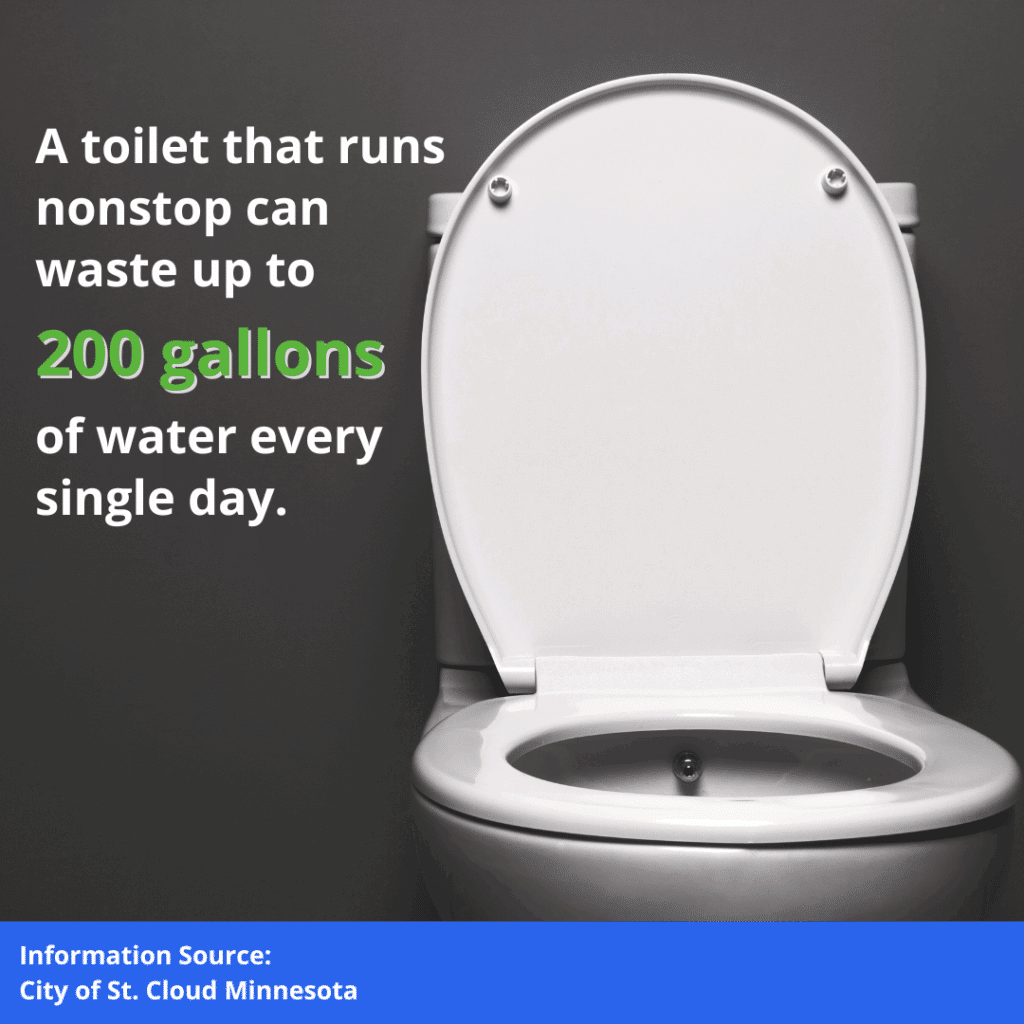If your water bill suddenly went up and you’re asking yourself, “Why is my water bill so high?” you’re not alone. Many homeowners face unexpected spikes, and the reasons aren’t always obvious at first glance. The cause can be anything from a small leak to changes in your daily habits, but the good news is that most issues are easy to track down once you know where to look.
In this guide, we’ll break down the most common reasons for a high water bill, show you how to figure out what’s happening in your home, and share practical steps to lower costs while keeping your household running smoothly.
Common Reasons Your Water Bill Is So High
High water bills often come down to a handful of common problems. By understanding these, you’ll know exactly where to start looking.

Hidden Leaks Around the House
Leaks are the number one culprit behind high water bills. Even small drips add up fast. For example, a faucet that drips once per second wastes more than 3,000 gallons of water in a year.
That’s water you’re paying for but not using.
The tricky part is that not all leaks are obvious. Pipes inside walls, under floors, or in basements can leak slowly for months before they’re noticed. Check for damp spots, musty smells, or unexplained puddles around your home. Your water meter can also help confirm if a hidden leak is driving up costs.
Running Toilets or Inefficient Fixtures
Toilets are the biggest water users in most homes. A toilet that runs nonstop can waste up to 200 gallons of water every single day. Often, the problem is a flapper that no longer seals properly, letting water continuously flow into the bowl.
Fixtures like shower heads and faucets can also waste water if they’re outdated. Older models may use two to three times more water than modern, water-efficient options. If your fixtures are more than 15–20 years old, upgrading could save you money almost immediately.
Outdoor Water Use You Might Overlook
When the weather warms up, outdoor water use usually increases. Lawn sprinklers, hoses, and irrigation systems can push your water bill higher than you expect. A small crack in a sprinkler line or a hose left running can waste hundreds of gallons each week.
Also consider timing. Watering your lawn in the middle of the day means much of it evaporates before soaking in, which means you’ll need more water to keep your grass healthy. Early morning or evening watering is more effective and efficient.
Household Habits That Waste Water
Sometimes the reason for a high bill is simply lifestyle changes. Longer showers, running the dishwasher more often, or washing smaller laundry loads can quietly add up. If you recently had guests or your household size increased, that extra demand might explain the jump.
Small changes, like turning off the tap while brushing your teeth or waiting until you have a full load before doing laundry, can lower your bill without requiring major sacrifices.
Seasonal or Municipal Rate Changes
Not every spike is caused by water use. Some water companies raise rates during peak demand seasons or add tiered pricing, which means the more you use, the more expensive each gallon becomes. Even if your habits stayed the same, your costs might go up if your utility adjusted its pricing. Always review your bill carefully for notes on rate changes.
How to Check Why Your Water Bill Is So High
If your bill feels unusually high, you don’t have to guess. Here’s a step-by-step process to pinpoint the problem:
- Review your bill: Compare the current bill with past ones. Look at both the total cost and the usage in gallons. Sudden jumps are often a sign of leaks or a new habit.
- Check your water meter: Turn off all water in your house. If the meter is still running, water is leaking somewhere. A small but steady movement on the dial means you’re losing water even when nothing is on.
- Test your toilets: Place a few drops of food coloring in the toilet tank. Wait 15 minutes without flushing. If color appears in the bowl, you’ve found a leak.
- Inspect outdoors: Walk around your yard and look for soggy patches, standing water, or overly green spots in the grass, which may signal underground leaks.
- Compare with neighbors: If others in your area are also seeing higher bills, the issue may be community-wide rate increases rather than something inside your home.
This process helps you separate personal usage issues from bigger system problems.
Easy Fixes to Lower Your Water Bill
Once you’ve identified the likely cause, you can take action. Many fixes are inexpensive and don’t require professional help.
- Repair dripping faucets and toilets quickly. Replacing a worn washer or flapper is usually simple and costs only a few dollars.
- Upgrade your fixtures. Low-flow showerheads and faucets can reduce water use by 30–50% without lowering water pressure.
- Run full loads. Dishwashers and washing machines use nearly the same amount of water whether half-full or full. Waiting until you have a full load saves gallons over time.
- Use efficient watering methods. Water your lawn early in the morning or evening, and consider drip irrigation for gardens to deliver water directly to plant roots.
- Install a smart water monitor. These devices track water usage in real time and alert you to leaks, making it easier to spot waste before your bill arrives.

Preventing Future High Water Bills
Fixing the immediate issue is important, but prevention keeps the problem from returning. A few simple practices can save you money in the long run.
- Do routine checks. Make it a habit to inspect faucets, toilets, and exposed pipes regularly. Small leaks can quickly become expensive problems.
- Upgrade appliances. Consider switching to ENERGY STAR or WaterSense-certified appliances. These are designed to use less water and energy without sacrificing performance.
- Educate your household. Encourage family members to be mindful about water use, including shorter showers, turning off taps, and running full loads.
- Track seasonal usage. Keep an eye on how your bills change throughout the year. Knowing your patterns makes it easier to catch unusual spikes.
Preventive care not only lowers bills but also reduces the risk of costly water damage to your home.
Other Smart Ways to Save Money on Utilities
While lowering water costs is important, you can save even more by taking a broader look at your household utilities.
- Switch to energy-efficient appliances. They reduce electricity use and lower the energy needed to heat water.
- Collect rainwater. Rain barrels are a cost-effective way to water gardens without touching your municipal supply.
- Landscape for efficiency. Drought-resistant plants and xeriscaping minimize water needs outdoors.
- Use smart home technology. Leak detectors, programmable thermostats, and smart plugs can help you cut waste across multiple utilities.
Combining water savings with energy efficiency creates a more sustainable home and reduces overall household costs.
Related Questions
How can I tell if my toilet is leaking?
Add food coloring to the toilet tank. If the color shows up in the bowl without flushing, water is leaking through.
What is the average monthly water bill?
In the U.S., the average household water bill is about $40-$60 per month, though it can vary widely depending on location, household size, and season.
Do low-flow showerheads really make a difference?
Yes. The EPA estimates that replacing just one old showerhead with a WaterSense model can save about 2,700 gallons of water per year for the average family.
Can seasonal weather affect water use?
Absolutely. Hot summers and dry spells often lead to more lawn watering, garden care, and outdoor activities, all of which raise water use.
Conclusion
If you’ve been wondering why your water bill is so high, the answer is usually one of a few things: leaks, outdated fixtures, outdoor use, or changes in daily habits. By checking your home, repairing issues quickly, and adopting water-saving habits, you can control costs and avoid surprises on your next bill.
At Enviroquest, we know that home maintenance isn’t just about comfort; it’s about preventing hidden issues before they become expensive problems. Our professional inspections help you catch concerns like leaks, mold, or energy waste early, so you can save money and protect your investment.
If you’re ready for peace of mind and a healthier home, schedule an inspection with Enviroquest today!
